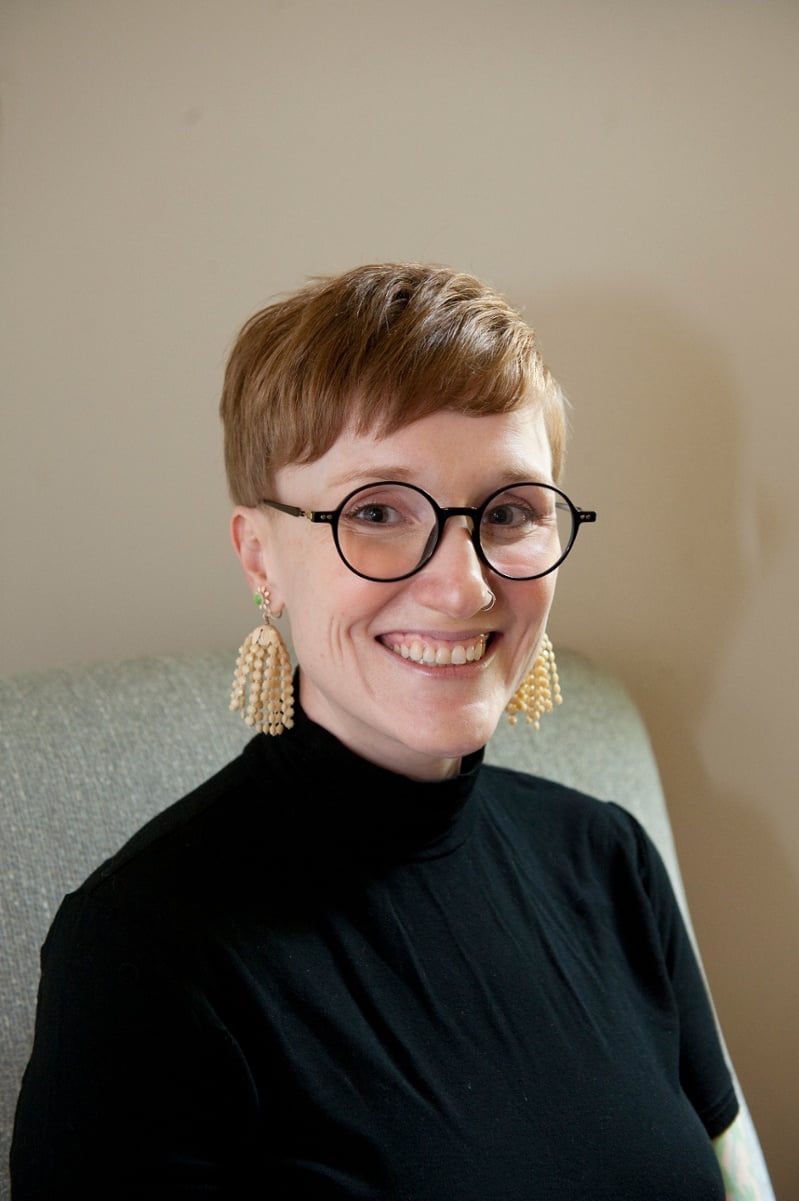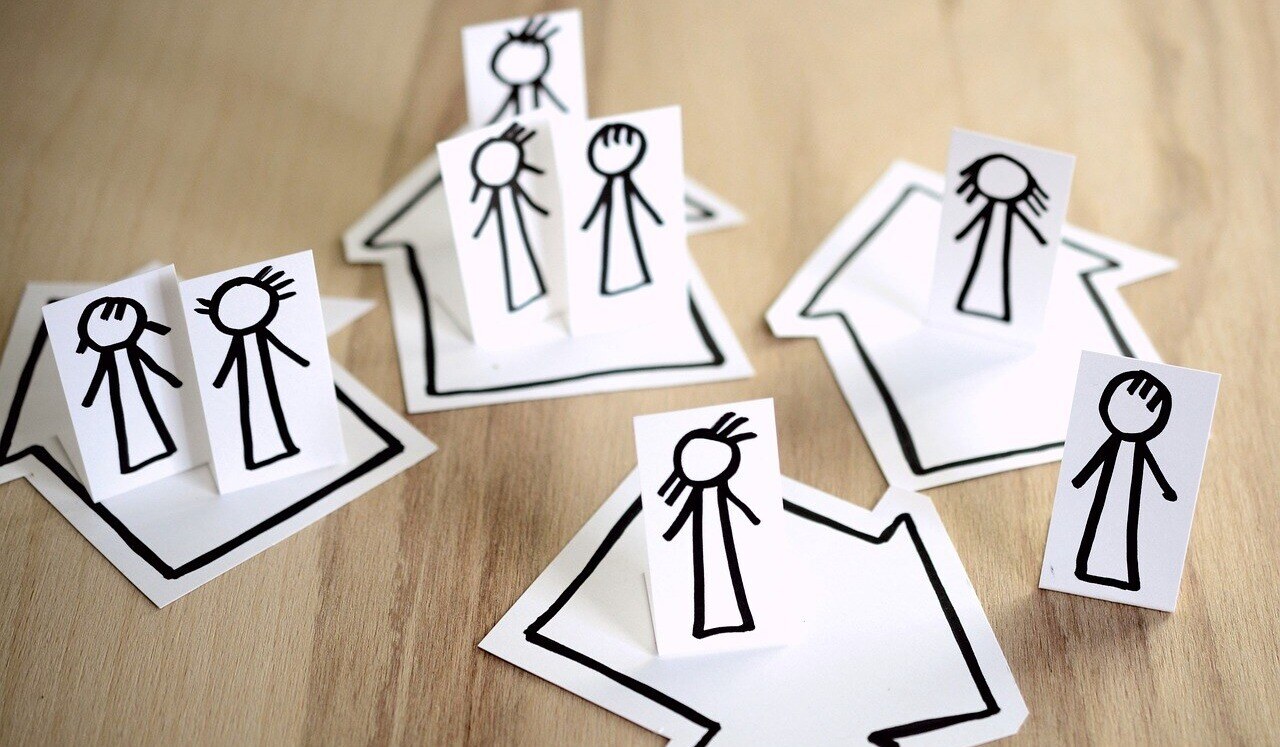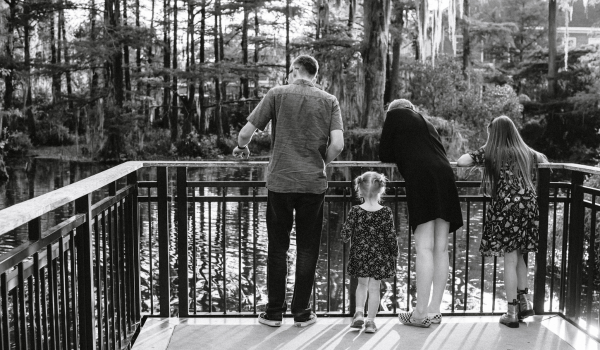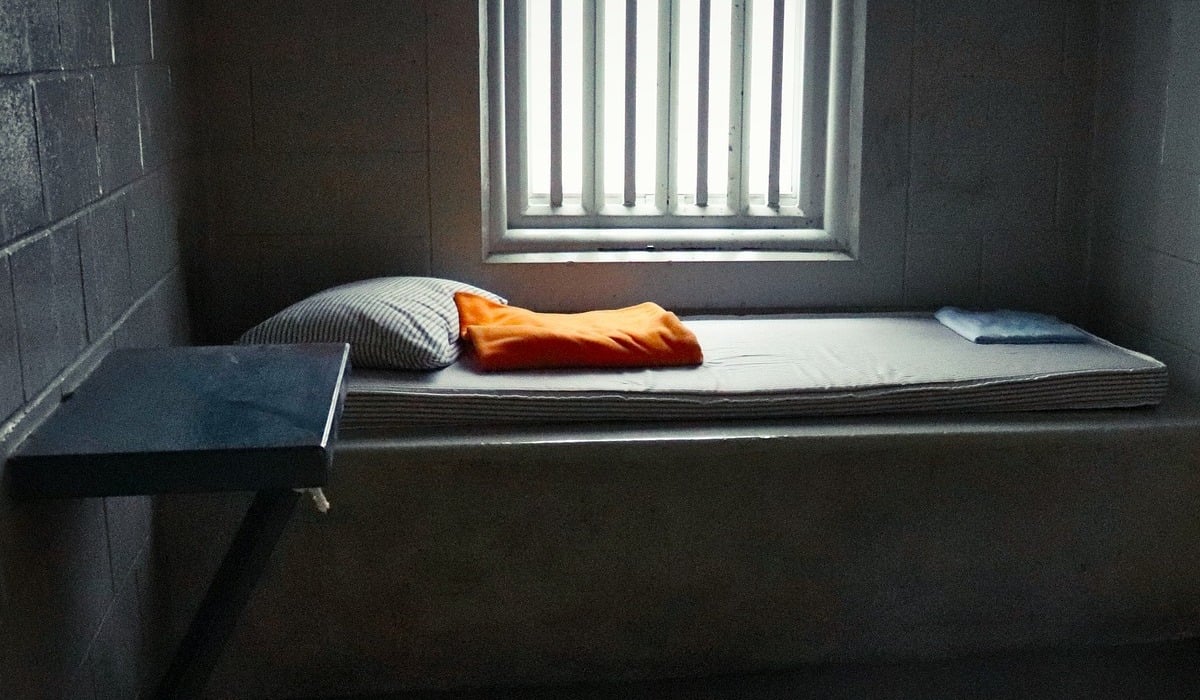1 min read
Parenting and White Supremacy
I hold several values most important in my life and strive to hold on to them loosely as I go about my day at home and at work. While I haven't...
10 min read
 Whitney Storey, MS, LPC, ASDCS
:
Sep 24, 2024 2:47:45 PM
Whitney Storey, MS, LPC, ASDCS
:
Sep 24, 2024 2:47:45 PM

As an avid TikTok user (and if I'm really honest, my social media consumption is not just limited to TikTok), I have been seeing some really emotional and intense conversations around parenting lately. One issue that seems to be particularly hot right now is the increase in adult children going no-contact with their parents. The parents of these adult children report feeling confused by what feels like an extreme response to a relatively good relationship through their now adult childrens' lives. Adult children's response to their parents' confusion is often met with confusion as well - how could they not know what is happening? How could they not see the pain that has existed between them and their parents? What seems to be happening to me is a discrepancy between very different parenting philosophies between these generations, so let's look deeper at what parenting philosophies have to do with it all.
Each time I was pregnant, I had people asking me if I had considered what kind of mom I was going to be, and I found myself confused by that question. A good one? That's all I really had thought of and was hoping for, and as my exploration of different types of parenting and direct experience in parenting my children increased, I began to really zoom in on the type of parenting I believed in. You may have similar experiences: Alpha parents, Beta parents, Attachment parenting, Authoritative parenting, Montessori parenting, Helicopter parents (and their more extreme peers, the Lawnmower parents)...there are so many different options! And while these parenting styles do sometimes give a more foundational philosophy (often focused on discipline), that isn't always necessarily the case, and it's this deeper philosophical exploration of parenting that I think is most important, especially in light of the no-contact movement.
Many folks initially respond with "to keep a child alive" when posed with this question - and that's an important component - but there's more to it than that. I would argue that beyond "keeping them alive" is where the most important ingredients in our parenting philosophies come in to play. And it can get really tricky to nail down any one particular parenting philosophy because often we feel drawn to so many different ideas and values. We want our kids to have it all! Narrowing down our core, foundational values of parenting, though, leaves us with the unique ability to see both the micro- and the macro-environments we are functioning in. Here are some examples of narrowed down parenting philosophies:
"I want my child to be happy and healthy, with the freedom to find their authentic self and life."
"I want my child to be successful in whatever path they take."
"I want my child to know and believe in our faith, letting that be a guide for their path."
"I want my child to feel safe enough with me that they have room to find their true selves and flourish in the bigger world."
What values and core ideas of the purpose of parenting come up for you in terms of the parenting you are doing or may one day do? What, based on your childhood, did the parenting philosophy of the people/person who raised you seem to be? You might find, as you read through those statements, that they all sound relevant to your parenting perspective and hopes. It's normal to have many values guiding you in your parenting - but finding the deepest, most core value is where the key to parenting is, especially when parenting gets tough.
In getting back to the no-contact movement, it appears that the mismatch in foundational parenting philosophy is where things have gone wrong.
I can imagine, as I write this next difficult piece, parents of adult children (and young children alike) feeling an immediate ache followed by an instinctual burst of anger and defensiveness. The feelings present for people who are isolated from their important people can be so intense and so heavy - honor those feelings. At the same time you honor them, consider what might be available to you if you're able to continue reading with those feelings as opposed to obeying their urge to flee or fight.
For adult children who have taken the no-contact route with their parents, I hear a deep frustration, growing from sadness and pain, over years of wishing that their parent(s) would see them, acknowledge the ways they have been harmed, and take steps to do better. Many of them don't even express deep feelings about the no-contact, admitting freely that their lives have improved vastly upon the exclusion of their parent(s) from their life.
Among the parents who have been excluded and cut off, I hear a confusion as to how a past, as imperfect as it was, cannot be viewed within a greater context. Why is the pain overriding all of the good that we shared? How can it be possible that through all of the effort I provided in raising my child, I am being excluded from their life now in adulthood? How can we heal a relationship if there is no relationship?
How did we get here? It's not at all expected that a parenting program/training/philosophy would consider the history of parenting practices in the United States; however, in order to understand how we got to a place where there can be such differing ideas of what parenting is within one generation, it's this history that offers an explanation.
Historically, in the United States, our parenting culture has been one based on authority and respect, guided by the philosophy of the Puritanical and eventually Evangelical religious movement. If you explore the parenting guides and information available to people in the 1800s and 1900s, many of the experts of the time suggested parenting from an understanding of both tabula rasa (i.e., the blank-slate concept of human development in the great nature vs. nurture debate) and that babies and children, who are inherently sinful, require shaping, molding, and correcting for them to become valuable and effective members of society. Religious doctrine drove our concepts of parenting as a nation, and it's these philosophies, especially in conjunction with one another, that led parents to believe that it is their responsibility to raise children with an understanding of right and wrong, that authority (from parents to country to deity) is to be obeyed, and that corporal punishment (and pain specifically) are tools to shape and guide children (e.g., "spare the rod and spoil the child").
Even those who grew up in nonreligious homes were impacted by these ideals due to the fusion of religious doctrine and parenting philosophy into our national culture. The guiding principles of the Church filtered out into culture until they became both indistinguishable from one another and, at the very same time, totally separate from one another. I think many parents who use corporal punishment, like spanking, now in 2024 would not know that the use of spanking (or hitting, slapping, whipping, etc.) as a parenting tool has its roots in the early Puritan and Evangelical religious faiths. Because the early church was rooted in punishment (from parenting in individual homes all the way to eternal punishment threatened as damnation in hell), it is natural that parents were entirely focused on preventing their children from this ultimate punishment, with stakes so high as to allow for extreme methods - the ends justify the means.
As physical punishment and the threat of eternal damnation dominated the conscious and unconscious parenting mind as the years passed on, parents were encouraged and at times explicitly instructed that children needed a firm hand, guidance in terms of what is right and wrong, and motivation to be and do better than their parents did. Parents became not places of safety and solace, but domineering figures who use physical and emotional pain, punishment, and threat to guide their children. Children are to do as parents say "because I say so" and any rebellion (no matter how small or large) is seen as a sign of the child probably/possibly heading into mortal danger and eternal separation and pain.
 For more on the history of parenting in the United States, especially in terms of the influence of religion on parenting practice, I recommend reading Spare the Child: The Religious Roots of Punishment and Psychological Impact of Physical Abuse by Philip Greven. He does a deep dive on historical parenting.
For more on the history of parenting in the United States, especially in terms of the influence of religion on parenting practice, I recommend reading Spare the Child: The Religious Roots of Punishment and Psychological Impact of Physical Abuse by Philip Greven. He does a deep dive on historical parenting.
It's also important to note that during these years, mental health, self-concept and self-esteem, and emotional well-being were not prioritized or recognized. In fact, with the influence of Behaviorism in the field of psychology during the mid-1900s, there was even more scientific focus on the benefits and power of punishment. So, for parents this meant that what they learned growing up in their own childhood was that being successful and avoiding any amount of pain was to listen to the people in power because they know better. And most of the time, this plan worked. They grew up to be successful, often more so than their own parents, and even if they might have earned a scuff or scrape, they have seen this philosophy work out for them. They followed the rules, they obeyed their authority, and they learned to succeed in a difficult world.
They went on to have children and parent their children through this same lens; however, the world was rapidly shifting and changing from the 1970s on, with change accelerating at a pace that many parents could not keep up with (mainly due to the invention and societal fusion with technology and the internet). The 1990s brought about the push for self-esteem in the school systems across the U.S.. Children of my generation were getting mixed messages, learning at school that they are innately worthy of love and care, that being hit or harmed physically by strangers or friends constituted abuse (which needed to be reported to the authorities), but that it was normal (and in fact, good parenting) to be hit at home and that their self-esteem was most directly tied to their success (e.g., grades, going to college, getting a career). They did as they were told, going to college despite the intense personal sacrifice (e.g., student loan debt, mental health struggles, etc.) and were met with a world that was not what they told it would be. They recognized the cognitive dissonance of being physically harmed by parents not being considered abuse...until it was considered "bad enough" to be abuse. They had the ability to learn more than any generation before them through the internet, allowing them to observe directly how other countries and cultures functioned in ways that were better and/or worse than their own.
The country became less reliable and less secure, and in that place of difficulty, they also lacked a sense of safety and security at home. In fact, while things were as difficult as they were...as they are, these now adult children realize that the greatest harms were being perpetuated in their own homes in a literal sense and in a larger sense. Their parents' generation is leading the country and leading in the home, and are living in totally different realities. Young adults in the early 2000s were frequently told they were not trying hard enough, that the generations before them had it harder than them, and that they needed to try harder. As trying harder became less and less effective for the young adult children, their parents pushed even harder, clinging to the promise that if they parented correctly, everything would be okay. They were doing what they were taught to do - why wasn't it working out with their own adult children?
And here we are today, with the millennial generation (though not only the millennials) finding that the push for success without any concern for well-being in a world that is no longer possible to succeed in like we were told, reached a point of burnout. The relationship between these adult children and their parents had been one of pushing and punishing, and people frequently talk now about the psychological and physical harm that they experienced through their years of being parented this way. I have heard stories echoed over and over of adult children recognizing the emotional awareness of their family system, the harm they have experienced as a result, and the work they have done in adulthood to relearn and reparent themselves to a place where they can be healthy. Often this process is triggered by other important relationships, most frequently when adult children begin the process of parenting their own children.
I don't find many people my age who adhere to the parenting practices we experienced growing up. Most of my peers have realized the harm caused by spanking and other forms of corporal punishment, and even more importantly, that discipline is a process guided by relationship first of all. Many millennials (and other similar generations who are also parenting) are breaking cycles and navigating parenting in a way that is totally new for their family system, and I hear from many parents that figuring out a parenting philosophy is overwhelming when trying to get beyond much of anything other than "not what I went through". In therapy, that has been the task I have worked through with parents in this phase of their life - digging deeper to really formulate their parenting philosophy. When your main goal of parenting is, for example, to foster healthy relationship and support your child to their chosen goals and values - everything else in the day to day feels a bit more simple.
Like many of the things I have found to be true in parenting my own children, I find myself drawn to two seemingly conflicting thoughts around all of the adult child-parent relationships:
Adult children who are no-contact with parent(s): you are allowed to go no-contact. Going no-contact is not something that just happens, and you are not crazy for finding no-contact to be far more peaceful and healthy than the relationship you had before. Boundaries are essential for healthy relationships. You deserved a healthier relationship with your parent(s) when you were a child, and maintaining relationship with your parent(s) is not your responsibility.
Parents of adult children who are no-contact: being a good parent is not a goal to achieve with some end point in mind. It is a moment-by-moment choice that you can begin now. Being a good parent also doesn't guarantee any one particular outcome - your adult child(ren) may not agree to relationship with you in the way you desire. Allowing them the space to choose, respecting their boundaries, and doing the hard work of disentangling your own trauma and upbringing from the relationship you do or don't have with your adult child(ren) now is the difficult and necessary process. Accepting and apologizing for harm caused by you is the most basic part of the process - and by the time adult children have gone no-contact, it may be too late for this to happen. The relationship you have with your children, at any age, is your responsibility. Seeking your own mental health support from a qualified therapist and approaching therapy with an open heart is the best first step.
Want to explore these topics more? Reach out at the image below or through a comment.

1 min read
I hold several values most important in my life and strive to hold on to them loosely as I go about my day at home and at work. While I haven't...

Once a week I prepare to go to a place that most people probably never imagine themselves choosing to go - my local jail. I have been going to the...

The holidays are looming, and this year, they’re following an emotionally charged election. Many of my clients and friends are already wrestling with...